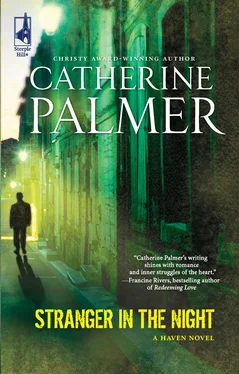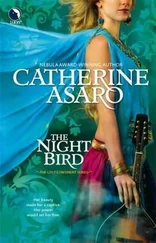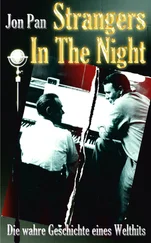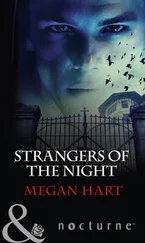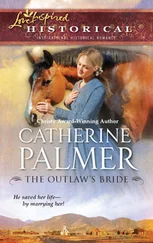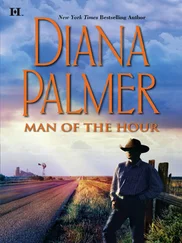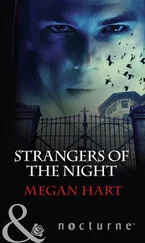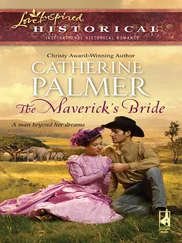She wondered if anyone could prevent genocide. Probably not.
Four sets of dark eyes stared back at Joshua. He had seen this before—a man, a woman, two children, a plea for help written on earnest faces. Their innocence could belie a body strapped with explosives. In battle, Joshua had learned not to trust any expression of virtue. But this wasn’t warfare—not the combat kind, anyway.
With a tired smile, Sam stepped into the open doorway of Haven. “Hey, there,” he greeted them. “What can we do for you tonight?”
The man gave an awkward little bow. Skin of polished ebony glowed in the streetlight. His gray shirt was too big, made of cotton, short-sleeved and wrinkled. Khaki trousers sagged at the ankles. Shoes, cracked patent leather with frayed laces, had parted at the seams to reveal threadbare socks.
“Good evening, sir,” he said, clutching a battered suitcase. A faint British accent, Joshua noticed. “I am Stephen Rudi. If you please, may I present my wife, Mary. And here is my daughter, Charity, and my son, Virtue. We come from Paganda.”
“What are you folks doing on the street at this time of night?” Sam asked. “This is a dangerous area.”
“Yeah, and it’s after two in the morning.” Terell was peering at his Rolex, evidently a vestige of his once-lucrative basketball career. “Mr. Rudi, your children ought to be in bed.”
“Indeed, sir. But we have had a most unfortunate day. Please, may I explain? You see, we had recently arrived in Atlanta when we received a letter from my wife’s brother. This man is our only family member to escape the recent unrest in Paganda. He invited us to join him here, where we could live with him and find better jobs. We traveled to St. Louis by bus, arriving this morning. But we searched all day, and we could not find him.”
“Aha.” Terell stifled a yawn. “So, you’re from where? South Africa?”
“Paganda, sir. It is in East Africa, near Lake Victoria.”
Joshua could see that neither Sam nor Terell recognized the country. He didn’t recall much about it himself. Former British colony. Few natural resources. Tribal conflict—humanity’s constantly failing effort to eradicate enemies. Sunnis and Shiites. Kurds and Iraqis. Hindus and Muslims. Nazis and Jews. Spaniards and Aztecs. Settlers and Natives. Boers and British.
Extermination never worked, but people forgot that. Again and again they attempted the wholesale slaughter of their foes. Genocide wouldn’t end until trumpets rang out in the eastern sky to announce the end of time.
“You still got that letter?” Terell asked, focusing on the man’s wife. “Uh…what was the name?”
“Mary.” Stephen Rudi spoke for her. He fished in his pocket and then unfolded a tattered sheet of notebook paper. Holding it out to Terell, he tapped a place near the end of the page. “This is the address, sir, but my wife’s brother is not to be found. Our search revealed nothing, not even the correct street.”
While Terell and Sam studied the letter, Joshua appraised the Pagandan woman who stood beside her husband. Tiny and thin-boned, she wore large round spectacles that all but masked the distinguishing features of her face. She kept her eyes downcast and her fingers woven together, as if determined to draw no attention to herself. Joshua had seen this attempt at self-preservation in Afghani women and children. An effort to hide in plain sight.
A scarf, elaborately knotted, covered her head. Her dress, threadbare pink gingham with eyelet lace at the neck, was mostly covered by a length of ethnic-patterned fabric. She had wrapped it in a sort of African sarong. The woman had the look of a frightened bird.
Turning his assessment to the two children, Joshua saw exhaustion weighing on them. They gazed up at their father in a mixture of respect and concern. Charity’s hair was braided in messy cornrows. Her bright almond eyes glowed with intelligence. She had white teeth, a pug nose, round cheeks. She would do well in school, Joshua thought.
The boy was a mirror image of his older sister—minus the cornrows and several teeth. How did so many five-year-olds manage to lose their two front teeth not long before Christmas? he wondered. The old song “All I Want for Christmas is My Two Front Teeth” wouldn’t be meaningful without a few toothless kids belting it out.
“I don’t think that street exists,” Terell commented. He passed the letter to Sam. “You ever heard of this place?”
Joshua eyed the document as his friend read it. Pulled from a college-ruled notebook, the page had been handled so much it was about to fall apart. Messy pencil marks were smudged, hard to read. A grease spot had blurred the signature. In the upper-right corner, a water ring muddied the blue lines. The letter was written in an African language, but the address at the end was clear enough.
Sam returned the precious page to its owner. “You sure this is in St. Louis, Mr. Rudi?”
“Indeed, sir.” Stephen glanced at his wife, suddenly hesitant. He spoke to her in their mother tongue for a moment. Head low, she uttered a couple of barely distinguishable words in response.
Stephen nodded. “If you please, sir. My wife is quite certain her brother lives in St. Louis.”
Terell and Sam eyed each other for a moment. Finally Sam spoke up. “I’m sorry, but Haven is not a homeless shelter. Our mission statement prohibits taking in strangers. We have a rule.”
Joshua couldn’t believe what he was hearing. He nudged his friend’s elbow. “Sam, can I talk to you for a second?” They stepped back into the building. “Since when did you abide by rules?”
“If we let these folks in,” Sam replied in a low voice, “we can’t turn anyone else away.”
“Come on, man. We can’t leave those kids on the street.”
Sam gave him a long look and shrugged. “I’ll probably regret this, but okay.”
As they emerged onto the sidewalk, Joshua reached for the children’s hands. “Come on, you two. The sooner you’re settled, the sooner we can all get some sleep.”
Sam let out a breath. “We’ll put you up for the night, Mr. Rudi. No longer than a week, though.”
“That’s our max, so don’t try to argue us out of it.” Terell spoke as firmly as he could, which wasn’t saying much. “Do you understand?”
Terell Roberts looked as if he could tear a man’s head off. But his gentle tone led Joshua to believe the guy was a bona fide teddy bear—compliant, impossibly kind, generous. How would he respond in a conflict situation?
“We would never wish to impose upon your kindness,” Stephen vowed to his benefactors as Sam bolted the door behind them. “Indeed, we are sincerely grateful.”
The Rudi family accompanied Terell across the basketball court toward the stairwell. Sam followed with Joshua.
“They’ll beg for more time,” Sam said under his breath. “They always do. The homeless, hungry, sick, battered, dying—they come to Haven hoping for a solution to their problems.”
“Do they ever find one?”
“Temporarily. We let them stay a night or two until they find other quarters. Relief agencies, shelters, food kitchens fill the gap. But it’s never enough.”
“Doesn’t the constant need drag you down?”
“Nah. It’s like the war. You focus on the good, the hopeful.”
“Your fiancée?”
Sam smiled. “Ana helps.”
The woman who had walked into Sam’s life that summer brought him to life again, he had told Joshua. He felt almost human for the first time since his military discharge. Sam said Ana’s intensity matched his own. She could be difficult and definitely stubborn. But with Ana, he could let down his guard.
Joshua was happy for his friend. He’d been too long without a woman in his own life, and he didn’t see much prospect for that changing anytime soon. Most of the girls at home were provincial. They believed everything they heard on television. Few had set foot outside the U. S. Some had never left Texas.
Читать дальше
